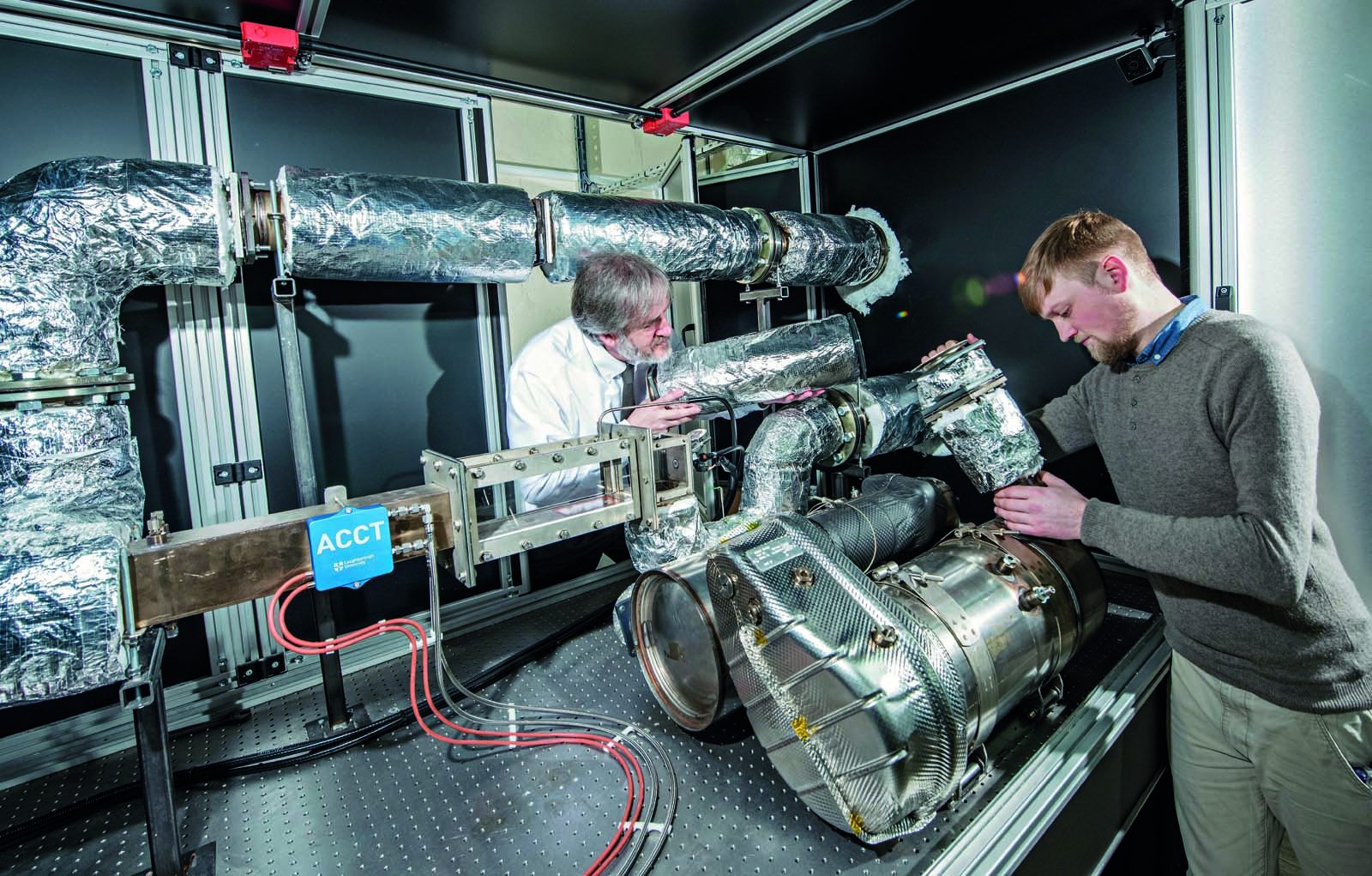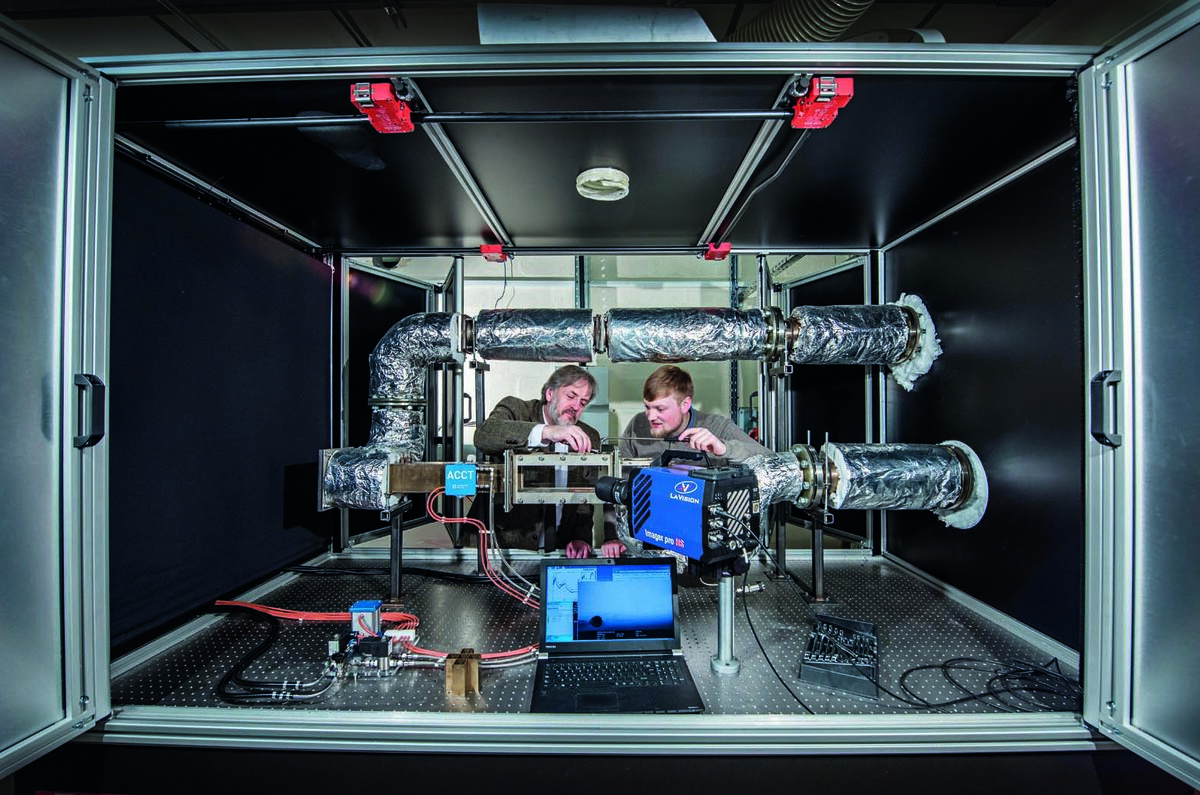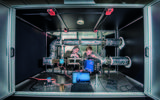A simple, affordable and apparently foolproof solution to the problem that has led to the current worldwide ‘demonisation’ of diesel engines — emissions of life-limiting NOx — has been discovered by a team of British automotive research specialists at Loughborough University.
The system, called ACCT (ammonia creation and conversion technology), has reached such a promising stage that the creators are being besieged by car manufacturers, component suppliers and even owners of large diesel fleets that have heard about the innovation and are desperate to use it to solve what they see as motoring’s most urgent problem.
The team — led by Graham Hargrave, professor of optical diagnostics, and Jonathan Wilson, research associate — has been working on exhaust missions for many years but achieved its breakthrough in the past two.
BMW raises CO2 figures for entire range
From its current state, ACCT should be fairly easy to engineer, the team believes, and could reach production within two years "with the right support”.

In essence, the system converts AdBlue, the universally available urea-based after-treatment, into a special ammonia-rich ‘ACCT fluid’ under accurately controlled conditions in an exhaust-mounted chamber.
Like current selective catalytic reduction (SCR) systems, it then uses freed ammonia “literally to rip NOx apart”, leaving only nitrogen and water. The crucial difference between the two systems is that ACCT fluid keeps working at high efficiency in low exhaust temperature conditions that challenge current systems.
Preliminary tests on a city-based stop-start Skoda taxi indicate that ACCT can capture 98% of exhaust-borne NOx, compared with 60% for the same car running a conventional EU6 system — even before researchers had a chance to ‘tune’ the ACCT system for the best performance.












Join the debate
Add your comment
Combine with HVO and preheating for even better economy
12 million diesel drivers can benefit from this research and exisiting solutions like HVO made from waste not food. Huge gains in mpg and lower NOx and other emissions. See Neste in Finland. Pre heat this thermodynamically efficient engine with renewable electricity for warm start up, lower emissions cf cold temp running and longer component life. See DEFA Sweden.
#scrappingiswasteful
The Lupo 3L and Audi A2 1,2 showed the energy saving potential but diesel's advantages were squandered by our #supersizemeSUVconsumercultre. EVs and PHEVs are just repeating error.
fight #vehilceobesity
How much?
I'm sure all the different companies
Queuing at the door will be taking this into account when they bid for the right to develop/buy/use this system.
nothing is free!
But without hope nothing would ever get developed!
All other options involve cost, envirnonmental impact and wasteful scrapping of reliable machines.
nothing is free!
But without hope nothing would ever get developed!
All other options involve cost, envirnonmental impact and wasteful scrapping of reliable machines.
All turbo combustion engines are getting too complicated.
Honestly it's just another complication to a system that is already too bloody complex. Modern engines with turbos and the layers and layers of electronics are becoming nightmares to maintain and fix. The fall in value when they are outside of warranty is precipitous, especially for anything more complex than a 4 cylinder.
Diesels are horrible. They sound shyte and they emit loads of soot. Particulate filters are so expensive people just disable them when it comes time to replace. The only thing they had was turbo torque and cheap fuel. Would rather have a petrol turbo engine any day.
Given the reliability issues of anything turbo charged (which are all heat related), would rather go for an electric car for my next car. Way simpler, far less moving parts, has the torque of a turbo engine, can fill it at home in my garage, beats conventional engine cars hands down on refinement, potentially upgradable with better batteries, excellent traction in snow and wet. They are just better drivetrains.
@zapb99 - what decade are you in...?
Turbos and heat soak issues were solved a long long time ago.